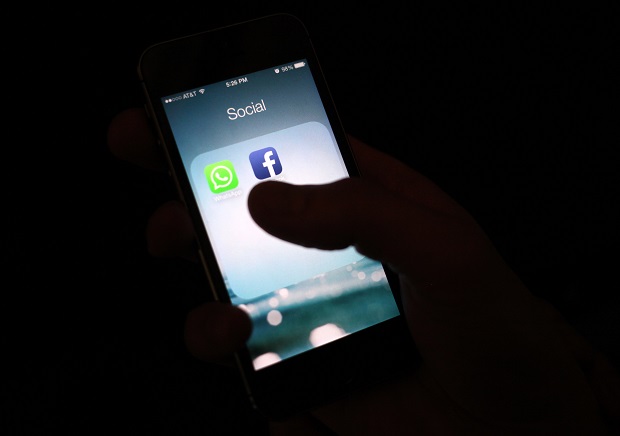Facebook should have ‘acquaintance’ category—study
PARIS, France—People cannot have 1,000 real friends on Facebook. Nor 500. In fact, anything over 200 starts seeming unlikely, an unusual study asserted on Wednesday.
Limitations on brain capacity and free time meant that humans can nurture no more than about 150 true friendships on social media, just as in real life, said a paper in the journal Royal Society Open Science.
The rest are acquaintances, or people recognised on sight.
A theoretical limit of 150 friends has become known as “Dunbar’s Number” after British evolutionary psychologist Robin Dunbar, who coined the concept.
He also authored the new study, and concluded the same limits applied online.
“There is some flexibility, perhaps, but not very much, and it mostly depends on how weak or strong you want your friendships to be,” Dunbar told AFP.
“It is as though we each have a limited amount of social capital and we can choose to invest it thinly in more people, or thickly in fewer people. But you can’t exceed these limits.”
Dunbar believes human relationships are layered in ever larger circles from closest to furthest.
We have on average five intimate friends, 15 best friends, 50 good friends, 150 friends, 500 acquaintances and 1,500 people we recognise on site.
“The 150-layer is the important one: this defines the people you have real reciprocated relationships with, those where you feel obligations and would willingly do favours,” the scientist explained.
“People can (and sometimes do) have 500 or even 1,000 friends on Facebook, but all they are doing is including people who we would normally call acquaintances or people we just recognise by sight but don’t know very well.”
Facebook didn’t distinguish between types of friendship, Dunbar pointed out.
Psychologists like Dunbar believe friendship limits are determined by two things: the ability of our brain to process multiple relationships, and time limitations.
‘Free fan club’
There has long been speculation that social media may allow us to pierce through some of these barriers, partly by allowing us to communicate with more people at a time—so stretching limited available social time.
For the new study, Dunbar used data from a two polls targeting more than 3,300 people in total in the United Kingdom.
The first group had 155 Facebook friends on average, and the second about 183.
When asked how many of their Facebook friends they could turn to for support in a crisis, people responded four.
Asked how many they could go to for sympathy, the answer was 14—echoing the pattern of real-life friendship layers.
Dunbar said there are some people with more than 300 friends, of course, “enough to confirm the urban myth”.
“They are the exceptions and not the rule, and we have to ask how well they really know these friends after the fist 200 or so,” he said.
“We should also be careful not to include professional users such as Justin Bieber in here: journalists, congressmen, writers, singers etc use Facebook as a kind of free fan club—it doesn’t matter to them whether they really know these people or not.”
RELATED STORIES
Facebook gets friendlier to adopted names
